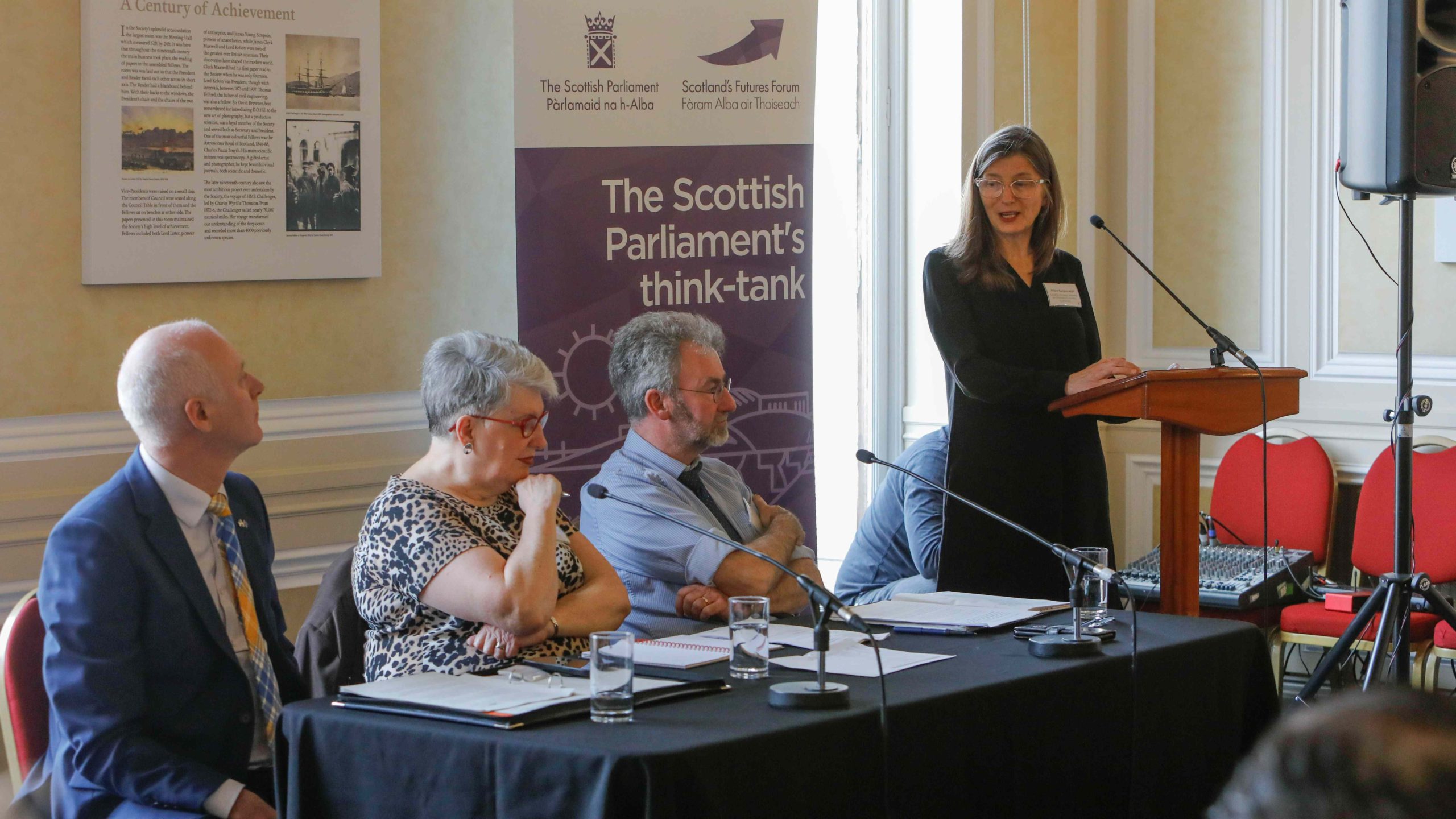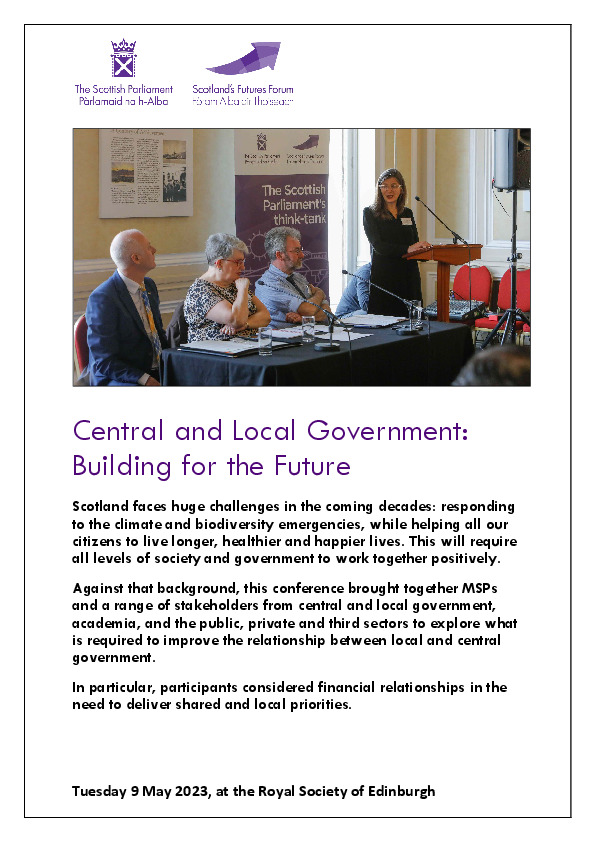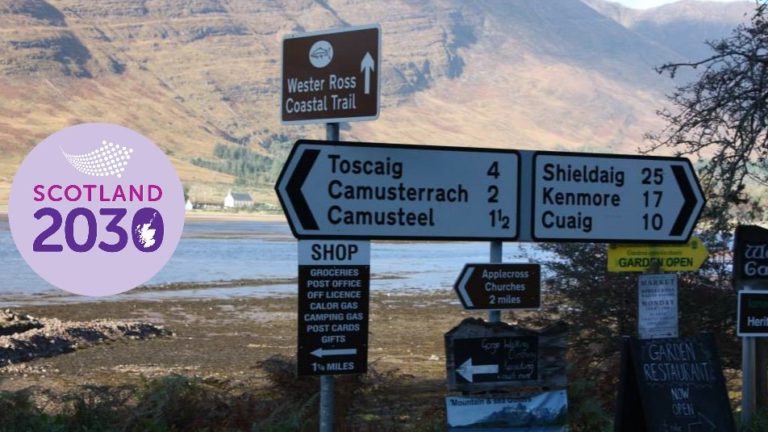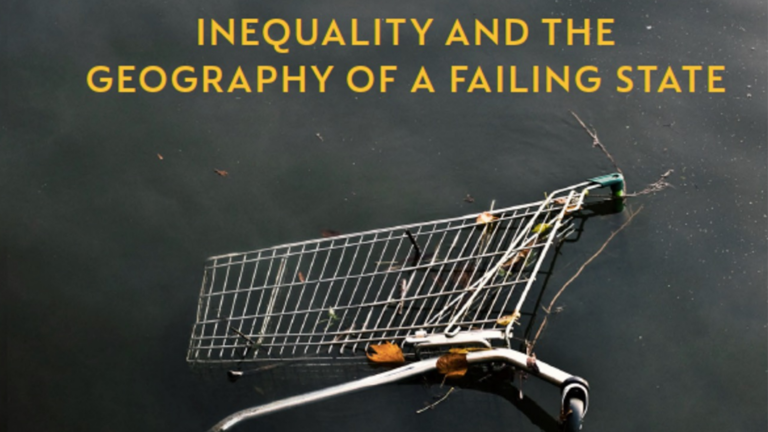Central and Local Government: Building for the Future
Tuesday 9 May at the Royal Society of Edinburgh
Scotland faces huge challenges in the coming decades: responding to the climate and biodiversity emergencies, while helping all our citizens to live longer, healthier and happier lives. This will require all levels of society and government to work together positively.
Against that background, this conference brought together MSPs and a range of stakeholders from central and local government, academia, and the public, private and third sectors to explore what is required to improve the relationship between local and central government.
In particular, participants considered financial relationships in the need to deliver shared and local priorities.
Introduction
This event brought together MSPs and a range of stakeholders to explore what kind of relationship we need to build between central and local government.
After a welcome from Ariane Burgess MSP, convener of the Scottish Parliament’s Local Government, Housing and Planning Committee, attendees heard from:
- Joe FitzPatrick MSP, Minister for Local Government Empowerment and Planning
- Councillor Steven Heddle, the Convention of Scottish Local Authorities
- Professor James Mitchell from the University of Edinburgh, and
- Dr Jonathan Carr-West from the Local Government Information Unit.
They then explored options for the future in workshop groups.
The event was chaired by Esther Roberton on behalf of Scotland’s Futures Forum. It formed part of the work by the Local Government, Housing and Planning Committee on the local governance review.
Key Messages
The following key messages came out from the presentations, workshop groups and post-event survey:
- Scotland (and the UK more widely) is an outlier in local government and local democracy. We have fewer local representatives per head of population who have fewer powers and are perceived less positively than their equivalents in many comparable countries.
- Local government is often seen as the delivery arm of central government rather than a partnership of equals. The lack of a definition of statutory services means that there are differing interpretations on exactly what councils – and central government – are required to do. This contributes to a significant lack of trust between central and local government.
- We should move to an outcomes-focused approach that supports and empowers local government and communities to design and implement their own solutions. Clarity on the powers and responsibilities held in the different spheres of government, allied to meaningful financial levers for local government and local communities, will help to build co-operative relationships.
- Moving to an outcomes focus and empowering local communities both mean giving power away. Central and local government will have to accept and respect decisions being taken that they may disagree with. National opposition politicians will also have to accept that the responsibility for outcomes is not the Scottish Government’s alone. Without such a change in our political debate, the process of empowerment and local autonomy will be undermined.
- Change will be a challenge for everyone in the system. Innovation will mean more variation and more risk taking, and there will be failures as well as successes. We also need to bring in all public service delivery partners, including those in the health and justice systems.
- We need to break the cycle of distrust to enable all spheres of government to build for the future. These challenges are significant but an agreement on how to proceed and bold leadership at all levels can build a better future.
Introductory Remarks
Esther Roberton (Scotland’s Futures Forum)
“Creativity, collaboration and courage”
As chair of the event, Esther Roberton began by reminding everyone that Scotland faces huge challenges in the coming decades, such as the climate and biodiversity emergencies and rising inequality. Tackling these issues, particularly during a cost-of-living crisis, will require creativity, collaboration and courage.
In that context, she asked “What kind of relationship should be built between the levels of Government, and what does that require us to do?” How can we manage tensions and overcome the barriers to change?
In flagging up these key questions, Ms Roberton emphasised the importance of having a local governance, rather than simply a local government, review.
Ariane Burgess MSP (Local Government, Housing and Planning Committee)
“Genuine parity of esteem”
In her introduction as Convener of the Parliament’s Local Government, Housing and Planning Committee, Ariane Burgess MSP stressed the importance of the government engaging with stakeholders in seeking to agree an effective and sustainable arrangement that works for both local and central government and helps to improve outcomes for citizens.
Ms Burgess set the scene: back in 2017, the Scottish Government and the Convention of Scottish Local Authorities jointly launched the local governance review to strengthen local decision making and consider how powers and resources should be shared between national and local government and Scotland’s communities.
A new deal has not yet been achieved, not least given the impact of the Covid-19 pandemic on timescales. However, as she emphasised, it is more important to get the agreement right than to meet an arbitrary deadline. Ms Burgess acknowledged the challenges around targeting scarce resources appropriately amid competing demands for finite resources, and she noted the benefits that greater accountability and transparency can bring.
Finally, Ms Burgess expressed optimism that the new deal will help to achieve the desired goals and move us towards building a more genuine parity of esteem between the layers of government.
Keynote Speeches
Joe Fitzpatrick MSP (Minister for Local Government Empowerment and Planning)
“A positive difference”
As the recently appointed Minister for Local Government Empowerment and Planning, Mr FitzPatrick shared his aspirations for the future relationship between local and national government. He stated that building, maintaining and valuing a strong working relationship with local government is a key priority, and he stressed that that requires energy, commitment and a willingness to listen and respect each other’s views.
The Minister outlined the Scottish Government’s commitment to a new deal for local government, based on the twin pillars of a new fiscal framework and an accompanying Bute House-style partnership agreement. He noted that the Government remains committed to finalising the partnership agreement with COSLA, building on the progress made to date, and he highlighted the importance of co-design and co-production.
As he stressed, the Scottish Government is keen to explore further ways of empowering councils and delivering local fiscal autonomy that will balance greater flexibility over local financial arrangements with clearer accountability, while demonstrating strong delivery of better outcomes for people and communities.
“Fostering an environment of mutual respect”
The Minister highlighted that the Government is keen to explore alternative governance arrangements such as single island authority models, and he emphasised that he would welcome new and refreshed proposals to ensure that different places have the powers that they need to drive recovery and renewal.
As Mr FitzPatrick noted, some of the proposals already submitted for innovative approaches to empowering our communities highlight the role that communities can play when they are trusted and resourced to take action.
The Minister also announced that the Democracy Matters engagement process will resume as part of the review, presenting an important opportunity for conversations with communities about how best to strengthen decision making at grass-roots level.
Finally, Mr FitzPatrick expressed the hope that the Scottish Government’s commitment to resetting the relationship between local and national government marks the beginning of a much stronger working relationship between the two spheres of government, strengthening democracy and fostering an environment of mutual respect in order to deliver what matters to communities.
Q&A Session
After his speech, the Minister answered questions on fiscal empowerment, the introduction of a land tax to replace “regressive” rates, and balancing the commitment to local democracy with a commitment to reducing variance in access to public services.
Councillor Steven Heddle (Convention of Scottish Local Authorities)
“Delivering the future we all want”
Councillor Heddle identified as the main driver for change the need to create a resilient partnership between local and central government in order to face future challenges.
He highlighted that, despite tensions arising from real-terms funding reductions and from ring fencing and direction with regard to policy initiatives over the years, the spheres of government must work together to ensure that the whole is greater than the sum of the parts and deliver the future that we all want for our local communities.
After a 2022 Local Government settlement and Resource Spending Review projections that he described as not just unsustainable but disastrous, Councillor Heddle highlighted the positive focus of a proposed new deal for local government, to include not only a partnership agreement but, significantly, a fiscal framework with three key aims.
The framework should:
- Promote stability, certainty, transparency, affordability and sustainability.
- Promote effective use of fiscal flexibilities and levers to address local priorities and improve outcomes.
- Enable discussion of the fiscal empowerment of local government.
“Further and faster”
Councillor Heddle noted that there had already been some progress on fiscal empowerment—for example, through the local visitor levy and a consultation on short-term measures to address the issue of long-term empty properties and second homes. However, he argued that progress had been qualified by what he saw as an overly prescriptive approach and a delay in legislation being introduced.
He stated that the Government needs to go further and faster with meaningful fiscal empowerment and suggested that a new relationship based on trust and mutual respect could lead to legislation to simplify the development and introduction of measures for revenue raising, aligned with the principles of the European Charter of Local Self-Government.
Councillor Heddle emphasised that there is a consensus that things need to change, with a number of areas to be addressed, including:
- The way we work together
- How we approach shared priorities
- Accountability and assurance
- Engagement
“Variation is not a bad thing”
Councillor Heddle stated that local government is seeking to secure an agreement built on mutual trust and respect, with a focus on achieving better outcomes for our communities. It should embrace the following:
- Approaches should be ‘local by default, national by agreement’, with decisions taken close to the citizen.
- Local flexibility to achieve shared outcomes, as variation in approaches across the country is not inherently a bad thing.
- Public service reform must remove barriers to local partners coming together around the community planning table and working effectively to deliver outcomes.
- There must be early collaboration and co-production between central and local government in all policy areas in which local government has a key interest.
- A simplified and consolidated local government settlement with multi-year certainty should be provided wherever possible.
- The default should be no ring fencing of funding unless there is a clear, jointly understood rationale.
“More than warm words”
He noted the importance of short-term specific commitments to validate and underpin ambitions for partnership working – ensuring that the European Charter of Local Self-Government is enshrined in Scots law as soon as possible, and successfully concluding the local governance review.
As the new deal encompasses both a fiscal framework and a partnership agreement, Councillor Heddle stressed that the success of the latter will require a framework that delivers more than warm words and recognises the key role that an empowered and resourced local government can play.
He also emphasised the need to work at pace towards a rationalisation and simplification of the current reporting landscape, with a focus on better outcomes rather than inputs and outputs. He argued that, over the past 16 years, the acceleration of directed and ring-fenced funding, along with reporting requirements, had diminished local flexibility and prioritisation.
Councillor Heddle also highlighted the need to recognise the long-term nature of some outcomes and to be prepared to commit to them, describing early intervention and prevention as a long game.
In addition, he identified the importance of ensuring that the spirit of a new partnership agreement extends to public sector partners alongside councils. As he argued, the Covid-19 crisis showed what can be done through a relentless focus on outcomes. He stressed that we need to capture that practice, remove the barriers and build on constructive behaviours as an enabling framework for the next steps towards achieving the outcomes that communities want and need.
Q&A session
After his presentation, Councillor Heddle answered questions on when the hoped-for future might become reality, the experience in the Covid pandemic, and the importance of the scrutiny and accountability arrangements.
With the question of trust highlighted again, Councillor Heddle stressed that, in his view, local government and the Scottish Government were both entering the process in good faith.
Presentations
Professor James Mitchell (University of Edinburgh)
“They only want winners”
Noting that we have been here many times before over many years, Professor Mitchell began by assessing the current situation and the reasons why we have fundamentally not made much progress since the 1970s. He identified the main factor: reform will inevitably involve winners and losers, and the fact that there will be losers frightens politicians, who only want winners.
Professor Mitchell highlighted the book “Follow the Money” by Paul Johnson, director of the Institute for Fiscal Studies, which looks at public finance, and cited its argument that Government can make a difference but chooses not to do so. Asserting that Government needs to be brave but so do we, Professor Mitchell argued that we will move forward in areas such as tax reform only if we can build a consensus around change.
He stressed that while many people would love to see big, radical, fast change, in his view the only realistic way forward is through gradual, incremental change.
“The devil is in the detail”
Emphasising that the appointment of a new First Minister is always an opportunity, Professor Mitchell enumerated Humza Yousaf’s campaign pledges on empowering local government and discussed the chances of success.
- Negotiate a Bute House-type agreement with local government
- Maximise local autonomy over spending power by reducing ring-fenced budgets through a new fiscal framework. While Professor Mitchell identified this approach as an important step forward, he noted that the devil is in the detail, and we need to get beyond the headline to look at principles.
- Take forward the local governance review and empower communities through fiscal, functional and community empowerment. Professor Mitchell stressed that the fiscal dimension is key, and that if communities are not resourced properly, central government is simply dumping problems on them.
- Consider new ways of working across public sector boundaries, through reforms such as single island authorities. As Professor Mitchell noted, too little progress has been made in breaking down silos.
- Consider improving financial support for local councillors in order to improve diversity. However, Professor Mitchell emphasised that we need to give councillors real power and autonomy to make their role meaningful and worthwhile.
- Accelerate the work of city centre recovery task force. Professor Mitchell highlighted this as a positive but suggested that the UK often fails to acknowledge the importance of cities, and that cities may need different powers from local authorities.
Finally, Professor Mitchell argued that when it comes to local government, we are outliers in Europe, and we could, and should, be doing much better on empowering communities and give meaningful self-government to our people.
Dr Jonathan Carr-West (Local Government Information Unit)
“One of the most centralised countries in the world”
To begin, Dr Carr-West agreed with Professor Mitchell that the UK is a massive outlier, as one of the most centralised countries in the world. He reiterated the current challenges faced by local government:
- Unprecedented financial pressure on councils, which have reached crisis point in England, although not yet in Scotland.
- Growing service demand pressure arising from the pandemic, an ageing population and people’s changing expectations of services.
- A crisis of trust in democratic institutions and in institutions more generally.
As he noted, we cannot fix the big issues without strong, sustainable local government and community empowerment, which requires strong democratic institutions to provide accountability and representation and to hold the ring between competing interests.
“Treated like the adults in the room”
Next, Dr Carr-West focused on the international context, based on the Local Government Information Unit’s research into local government finance systems in other countries.
He pointed out that in Germany, Japan and Italy, for instance, there are clear constitutional roles, responsibilities and protections for local government, which enables a greater sense of partnership and a shared approach to tricky issues. As he put it, in those countries, local government are treated like the adults in the room.
Dr Carr-West also highlighted Australia’s re-establishment the Australian Council of Local Government. This puts leaders of local government and the national government in one room, allowing ministers to hear directly about the issues impacting local government sector. But he cautioned that that could become simply a more elegant forum in which ministers could say no to local government.
He pointed out that a range of initiatives that work well in other parts of the world, such as local sales taxes and municipal bonds, are not even on the table for discussion here.
While he acknowledged that the Scottish context is very different, he argued that we can learn a huge amount just by looking at what has been done—badly or well—in other places.
Nonetheless, as Dr Carr-West stressed, we need a willingness to move into that space, and to work with other countries to make the case that local government is the key agent for change in our communities.
Q&A Session
Prof. James Mitchell and Dr Jonathan Carr-West
“A willingness to release control”
In response to the presentations, the subject of participatory budgeting was discussed. A question was raised as to why, if we want to empower communities, other areas such as police, fire and health are not doing the same as local government in that respect.
Professor Mitchell noted that while participatory budgeting has been an interesting experiment and seems to have worked, we should not become obsessed with that particular approach, as there are other ways of engaging with communities. It was reiterated that, during the Covid pandemic, there was a willingness to release control and engage with communities, and that relationships between councils and health boards, for example, were very different.
Dr Carr-West pointed out that successful participatory budgeting requires strong local democratic bodies, and suggested that, to flip the initial question, the fact that such participatory methods are not used in other parts of the public sector such as health or policing illustrates how undemocratic those areas are.
“All hell broke loose”
Dr Carr-West argued that we are not good at thinking through how deliberative and participatory methods sit within institutional frameworks. He also highlighted the question of how we manage the interaction between local deep dives and a globalised world, pointing out that in Oxford, a citizens’ assembly on climate led to the introduction of traffic-calming measures, and then all hell broke loose with protests.
It was suggested that participatory budgeting had worked well across the public sector in specific areas such as East Ayrshire, where further community empowerment has led to a shift in the balance of power and brought police, health and others to the table.

Drivers for reform or impediments to change?
It was suggested that there is little appreciation for local government in Scotland, and therefore no incentive for people to run for council office. Participants argued that at national level, there is no political champion to advance local government reform. Questions were raised around the drivers for reform, and whether an external mediator is required to unlock the stalemate between national and local government on reform.
Professor Mitchell suggested a different view, asking what the impediments to reform might be. He commented that, in his view, Scotland is a very conservative—with a small c—place, and government is too timid and frightened to take on the middle classes who need to pay more.
Professor Mitchell also identified issues with the Scottish Parliament sucking up so much responsibility, and with the lack of a culture of working together. A familiar issue was raised regarding the fact that politics is caught up in election cycles, which is not conducive to a long-term approach.
Professor Mitchell reiterated that change must be consensual and incremental, and he highlighted an opportunity for members of the Parliament’s Local Government, Housing and Planning Committee to ignore their party leaders and work together across parties. On a similar theme, it was also asserted that constant churn in the membership of parliamentary committees does not give MSPs the chance to build up the expertise and understanding that would give them the confidence to be bold and take on their parties.
Dr Carr-West argued that we have never built a compelling case for what central government looks like post devolution. In his view, power tends to be seen as a zero-sum game, with central government giving away its power to local government.
He suggested that the role of central government needs to be reconceptualised so that it does not get dragged down into local matters, although it would be hard to see how that could be achieved. He argued that, while we spend all our time talking about what local government could look like post devolution, we need to give a bit of thought to what central government would look like.

Workshop Groups
Following the presentations, the participants split into groups to explore the issues in more detail. The workshop groups reflected on the current situation, discussed people’s ambitions for the future, and explored how we can overcome barriers to change.
The following sections outline the key points to come out in response.
What does the relationship between local and central government currently look like to you?
There is a lack of clarity on the role of local government
One issue that underpins any discussion on local government is the lack of clarity on council duties and how they fit with central government duties. There is no single definition of statutory services, which can mean that there are differing interpretations on exactly what councils are required to do.
Some argued that these blurred lines of responsibility and accountability have meant that central government makes decisions that are inappropriate for it to take, leading to a prescriptive relationship.
This also means that local government spends too much time on the nature of the relationship with central government, taking away from councils’ capacity to provide leadership and change. This situation is further complicated by the United Kingdom Government interventions, as local authorities have to negotiate with both the UK Government and the Scottish Government for funding.
Local government is widely seen as merely a delivery agent
The view was widely shared that local government is currently seen as the delivery arm of central government both by the Scottish Government and more widely. It was suggested that (to use a business analogy) the Scottish ministers act too much like chief executives rather than directors, focusing too much on operational matters and not enough on strategic direction.
Equally, central government officials do not bring local government into the development of policy soon enough. Policy is provided to local government rather than developed in partnership, and on some occasions policy decisions are even announced without local government being told beforehand.
This relationship was therefore seen as too prescriptive. Local government is told not only what outcomes they should deliver, but also how to deliver them, despite the potential for local ideas about how to deliver outcomes within local contexts.
Indeed, in one group, participants described this as being an ‘adult/child relationship’, with central government telling local government what to do. The adult-to-adult communication on creating and delivering policy has been lost. Indeed, it was widely noted that local councils in Scotland are some of the least powerful local representatives in the world.
The financial relationship limits what is possible
Central to the relationship between central and local government are the funding arrangements. Participants noted that both the approach to funding and level of funding from central government limits what is possible.
It was suggested that the current distribution mechanism does not adequately deal with the scale of what local government has to deal with: there is the minimum level of resourcing to deliver minimum outcomes.
Equally, the rules do not allow local government to try new things, learn and develop. It is agreed that local needs should be recognised and communities empowered, but there is no flexibility in the system to respond to that. Participants discussed the specific example of school counsellors: the Scottish Government mandated that there must be one in each school, but a recent report by young people themselves argues for greater local flexibility.
Finally, dealing with funding at a national level can turn it into a winners-and-losers situation: local authorities are competing with each other to receive central funding rather than developing their own resources.
Local government is not heard or respected
Another factor in the relationship is the number of local authorities, which, some argued, makes it difficult for local government to be heard. With 32 councils, it is more of a challenge for local authorities to make their voices heard on a national stage compared with, for example, metro mayors in England or the previous regional councils.
This lack of profile, added to the lack of powers, means that, although their work affects many aspects of our day-to-day lives, local authorities lack trust and legitimacy. This discourages many people from putting themselves forward as local representatives, which itself means that those who are willing and able to put themselves forward are often not fully representative of the communities they serve.
A lack of trust is a vicious cycle
Perhaps most importantly, participants identified a significant lack of trust between central and local government, which spreads to local communities. Distrust of local government has an impact on turnout for elections, which then creates a perception that the local councillors lack the same level of legitimacy as MSPs.
Furthermore, given the importance of local government in delivering many public services, a failure by central government to give it the freedom and funding to act with autonomy will see both failing to achieve their aims.
One participant described this as a slow but mutually assured destruction, perhaps evidenced by the number of people reporting loss of faith and confidence in democratic structures .
What would a successful system look like for you and the people you work with?
Within an overall focus on outcomes, there would be more flexibility for local solutions and an acceptance that delivery will vary
Participants outlined a hope that the relationship would move to a clear focus on improving outcomes for people in Scotland with an acceptance that, in doing this, the solutions would be different in different parts of the country.
With a long-term focus beyond the election cycle, the spheres of government would recognise their role, that change is iterative, and that learning is done along the way. This would be a change from central government viewing local government as a delivery body for national policy and priorities.
As part of this, there would have to be clarity on how to approach shared accountability for performance in areas such as education and social care, which many thought should sit with local government and not the Scottish Government. The role of central government in providing strategy and co-ordination would be explored and explained clearly.
To support this change, there would have to be a willingness to accept local variation. Participants suggested that political courage – and agreement – would be needed to identify what can be left up to local delivery compared with national requirements.
This would require the national political and media debate to move away from any discussion of a postcode lottery, which is the natural consequence of delivery tailored to the needs of local communities. Such a change would affect the political approach of both government ministers and opposition politicians.
Any renewed focus on outcomes between the spheres of government would also bring about a reduction in duplication between bodies, such as in economic development and employability.
Local government would have more financial autonomy within a national framework
A focus on outcomes should be accompanied by a simplified funding landscape for local government, with a common understanding of the process and figures involved. This would reduce short-term imitative-based resourcing, remove ringfencing and enable longer-term planning.
This would include multi-year settlements for local authorities, which they could then use to support multi-year settlements for the organisations and communities they work with. Local authorities would also be able to raise more of their own revenue, making clearer their accountability to the communities they serve.
This approach would also enable innovation (and therefore support improvement), with reporting requirements that provide flexibility as well as accountability. Within this approach, Scottish Government funding would be used to enable and encourage culture change and get public bodies to work more collaboratively.
There would be true community empowerment beyond local government
One key theme the participants covered was the need for both spheres of government to let go: transfer of power should not just be about power and finance moving from national to local government but take place all the way down to a community level, including both the voluntary sector and wider society.
This would link to a focus on better democracy, taking empowerment beyond just citizens assemblies and participatory budgeting to enable powers of local initiative and systems that have different people around the table from the start.
This would bring in valuable information on how policy will impact on different communities, although it would have to be supported by better data on what communities are facing to enable tailored approaches for local areas.
A co-operative relationship of partners built on parity of esteem
Participants described an active relationship with genuine partnership working and co-design of policy. Clarity and accountability between the two spheres of local and central government would help them to share frustrations, explore ideas and find solutions together.
This requires structure for regular dialogue, both formal and informal, that can balance the natural disruption that occurs with political change at elections. Such a framework would not always mean agreement, but a common understanding of the issues would mean less time is wasted and faster progress is made on the things that really matter to people.
In the longer term, this would help elected representatives and officials both build capacity for more complex collaboration to deal with the more complex challenges.
Trust and clarity working as a virtuous circle
As noted above, trust is a key ingredient for any successful relationship, and participants stressed the need for trust to be built among the different people involved in local and central government.
It was noted that people cannot trust institutions unless they understand what their role is and what they are doing, so it is vital that there is clarity on who has responsibility for what. Clarity is important both for central and local government.
A constitutional framework with a clear demarcation of roles would create that clarity and avoid duplication of effort. Beyond that, trust will be built through reaching a shared understanding of the roles of each sphere and respect for their decisions even when there is disagreement about them.
Where are the tensions in this relationship? Where do our ideas come into conflict with each other?
Political and public debate
It can be hard to move to an outcomes-focused system when the political and public debate is around number and outputs rather than policy and outcomes. Citizens and their elected representatives can be more interested in things being sorted (delivering free school meals or cutting energy costs) than in policy terms like child poverty.
The desire for fairness limits the variety of delivery that is seen as acceptable throughout the country. Equally, with a greater amount of local variation there is a greater danger of no one taking ownership of big problems. Will it be easier to blame each other than work together?
Central government moving to a more strategic role would mean explicitly prioritising what is most important, which is politically challenging. Deciding what is most important also includes deciding what is less important.
There are significant challenges for funding in the current economic climate. It is difficult to get political will to make local government funding sustainable because it is in competition with other budget areas, such as the National Health Service.
The process of change
Empowering local communities means giving power away. Central and local government will have to accept and respect decisions being taken that they disagree with. That said, friction can be healthy in supporting successful outcomes.
Community empowerment also needs support in order to be successful. Without support, less wealthy communities may not have the resources to make the most of community empowerment, which might then exacerbate inequalities.
More innovation means more risk taking, and there will be failures as well as successes. How can central government, councils and communities be supported through the process of innovation?
It is hard to change culture while the day job of delivering services continues. This is particularly the case as the after-effects of the Covid-19 pandemic are still being felt.
The complexity of the system
We need the data and performance frameworks to match up. The National Performance Framework and Local Government Benchmarking Framework need to align the data gathering and indicators.
It is hard to connect national priorities to community priorities. If national outcomes are not applicable to people on the ground, the work to implement them loses legitimacy.
Successful relationships can be dependent on individuals, who come and go. We need to look at how institutions work together to make changes stick.
Not everyone is able to participate, either by standing for election or by taking part in community projects. We have relatively few local politicians compared with other countries, so our councillors have less time to engage.
How do we overcome these barriers?
Shared agreement
An agreed focus on outcomes rather than outputs will focus attention and political debate on the things that matter. Performance reporting should be aligned and be based on a shared approach with common data sets. The budget should also be closely linked to the performance framework.
We need agreement and clarity on the roles and relationship between central and local government and local communities. Each sphere of government should have a different, clearly understood focus, with resources targeted on that basis. This should include the ability of local government to raise more of its own finance.
We need an agreed approach to empowerment, which applies across all levels: national, local and very local. This requires engaging with people beyond the usual groups and organising opportunities for people whose voices are not usually included to be heard. This is long term work and needs time.
Bold leadership
Political leadership is required from across the political spectrum and country. For reform to work, it needs politicians across all parties with genuine passion for local government willing to spend political capital on reform. A partnership agreement or reset could help to change behaviours, including in publicly funded partners like health boards and the police.
This is a question for all parts of the public sector. Any agreement between COSLA and the Scottish Government is important, but it is vital to include those involved in community planning.
We need to make some allowances for building back after the Covid-19 pandemic. We need to create the capacity for change. Could reporting requirements be reduced for a period of time to allow councils to do this?
Meaningful investment
We should value local government more. Central government should highlight the positive things being done at the local government level, including to support areas that are publicly popular, such as the NHS. We should also pay local councillors more to do what is a full-time job and encourage more diverse representation.
We should invest in the relationships before structures. Although structures need to be considered, the priority should be to create space for dialogue between the spheres of government regardless of the political context.
It is time to consider the structures of local government that we have. Do we need 32 councils with identical powers? What can we learn from experience in England and elsewhere? Can we look at efficiencies: do we need to go through 32 different procurement processes for IT systems?
Trust in each other
We need to break the cycle of distrust to enable all spheres of government to build for the future. Central government must trust councils even when they take decisions they are uncomfortable with. Local government must do the same with communities. This acceptance must apply to politicians and officials at all levels.
Speaker Biographies

Esther Roberton (event chair) is an expert in civic, corporate and constitutional governance and passionate advocate for a new route map to Scotland’s future.
She has spent a lifetime in public service, most recently as Chair of NHS Lothian and before that Chair of NHS24 and a Non-Executive Director of the Scottish Government. In 2017 she was asked to chair the Independent Review of Legal Services Regulation for the Scottish Government and was a Press Complaints Commissioner from 2007 to 2014.
In the 1990s, Esther was Co-ordinator of the Scottish Constitutional Convention, whose 1995 publication ‘Scotland’s Parliament, Scotland’s Right’ provided the blueprint for devolution. Esther is currently one of the non-executive directors of Scotland’s Futures Forum and Chair of Fife Cultural Trust.?

Ariane Burgess MSP is Convener of the Local Government, Housing and Planning Committee. She is the Scottish Green Party spokesperson for Communities, Land Reform, Housing and Rural Affairs and MSP for the Highlands & Islands.
As Convener, she helped to steer the new National Planning Framework through Parliament and she also sits as an ordinary member of the Rural Affairs and Islands Committee.
In January 2023 she launched her Regenerative Scotland podcast which explores the action needed to ensure a thriving future in the face of our climate and nature emergency through a series of in-depth conversations about aspects of her parliamentary work.
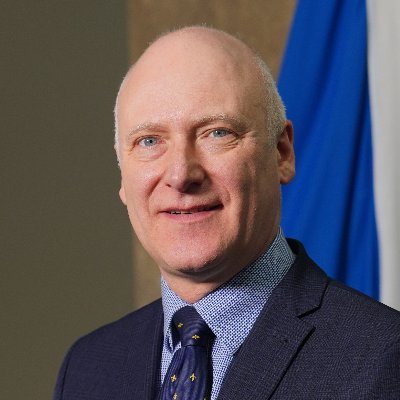
Joe FitzPatrick MSP is Minister for Local Government Empowerment and Planning. Born in Dundee in 1967, Joe was educated at Whitfield High School. He studied forestry at Inverness College and worked for the Forestry Commission before gaining a first-class honours degree in science from Abertay University.?
A former assistant to Shona Robison MSP and Stewart Hosie MP and, from 1999, a Dundee City Councillor, Joe was first elected in May 2007 to the Scottish Parliament to represent the Dundee West (now Dundee City West) constituency.
Joe previously served as Minister for Parliamentary Business and then Minister for Public Health, Sport?and Wellbeing before taking up his current post in March 202

Steven Heddle is Vice-President of the Convention of Scottish Local Authorities (COSLA) and Councillor for the Kirkwall East Ward.
He first joined the COSLA team as the Environment and Economy spokesperson in 2017. In Steven’s current post, he has a number of roles – from supporting the COSLA President and the other spokespersons to engaging with the Scottish Government at Cabinet level, as well as providing political leadership.
Steven has represented the Kirkwall East ward of Orkney Islands Council, as an independent Councillor, since 2007 – he was the leader of the Council from 2012 to 2017.
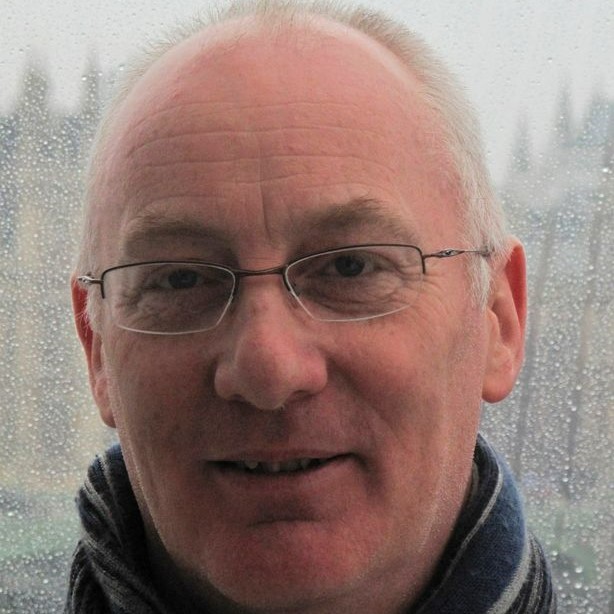
Professor James Mitchell is currently Professor of Public Policy in the School of Social and Political Science at the University of Edinburgh, having joined the School in April 2013.
James’ interests are primarily in territorial politics, public policy and government and political behaviour. He previously held the Chair in Public Policy at the University of Sheffield (1998-2000) and the Chair in Politics at the University of Strathclyde (2000-2013).
James completed his undergraduate degree at the University of Aberdeen and his doctoral thesis at Nuffield College, Oxford University.

Jonathan Carr-West has been Chief Executive (CE) of Local Government Information Unit (LGIU) since February 2013 where he leads on all aspects of the think tank’s policy, membership and influencing work.
Prior to being appointed as CE, Jonathan was Director of Policy at the LGIU, where he led on research and consultancy, policy development and piloting, best practice dissemination and learning and development
With over 15 years’ experience, Jonathan is a leading national expert on local government transformation, local democracy and public services. Some of his particular interests are in participative democracy, the evolving nature of public services and devolution. .
Partners

Participant List
| Name | Organisation | Name | Organisation |
| Susan Adams | – | Andrew Kerr | City of Edinburgh Council |
| Martin Booth | CIPFA | Fumi Kitagawa | University of Birmingham |
| Chas Booth | City of Edinburgh Councillor | Kate Lackie | The Highland Council |
| Nikki Bridle | Clackmannanshire Council | Diarmaid Lawlor | Scottish Futures Trust |
| Miles Briggs MSP | LGHP Committee | Angela Leitch | – |
| Ariane Burgess MSP | LGHP Committee | Ruth Lightbody | Glasgow Caledonian University |
| Andrew Burns | Accounts Commission | Thomas Lynch | Local Government Information Unit |
| Carol Calder | Audit Scotland | Stuart McIntyre | University of Strathclyde |
| Jonathan Carr-West | Local Government Information Unit | Tim McKay | Accounts Commission |
| Cristina Clopot | Royal Society of Edinburgh | Ivan McKee MSP | LGHP Committee |
| Willie Coffey MSP | LGHP Committee | Catherine McWilliam | IoD Scotland |
| Fiona Colligan | Natasha Miller | Scottish Government | |
| Blyth Deans | Audit Scotland | James Mitchell | University of Edinburgh |
| Scott Dickson | Our Scottish Future | Hannah Muirhead | Local Government Information Unit |
| Kristy Docherty | Edinburgh Futures Initiative | Alys Mumford | City of Edinburgh Councillor |
| Oliver Escobar | University of Edinburgh | Susan Murray | David Hume Institute |
| Ben Farrugia | Social Work Scotland | Esther Roberton | Scotland’s Futures Forum |
| Kim Fellows | Local Government Information Unit | Jim Savege | Aberdeenshire Council |
| Kirsty Flanagan | Argyll and Bute Council | Ian Wall | – |
| Jim Gallagher | University of Glasgow | Sarah Watters | COSLA |
| Helena Gray | Audit Scotland | Stephanie Webb | Royal Society of Edinburgh |
| Mark Griffin MSP | LGHP Committee | Annie Wells MSP | LGHP Committee |
| Emma Horrell | Deloitte | Gavin Whitefield | Mercat Group of Former Local Authority CEOs |
| Katie Kelly | East Ayrshire Council |
The event was supported by officials from Scotland’s Futures Forum and the Scottish Parliament.
Please note that this report outlines the key points that emerged from a number of rich discussions. It does not necessarily represent the views of all participants in those discussions.

